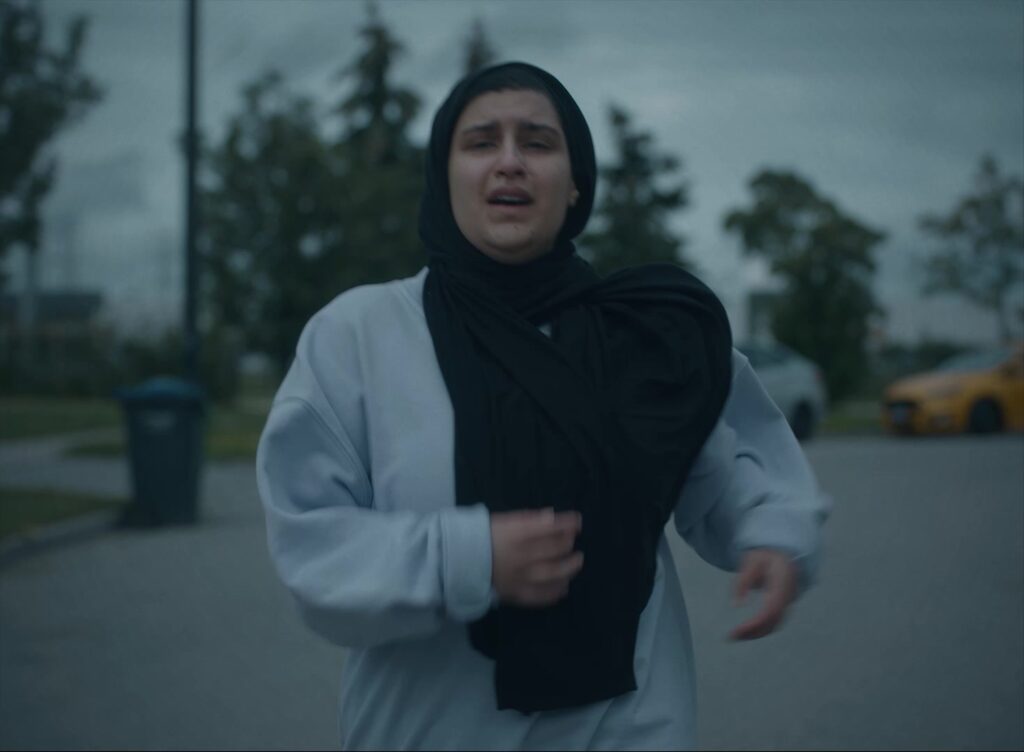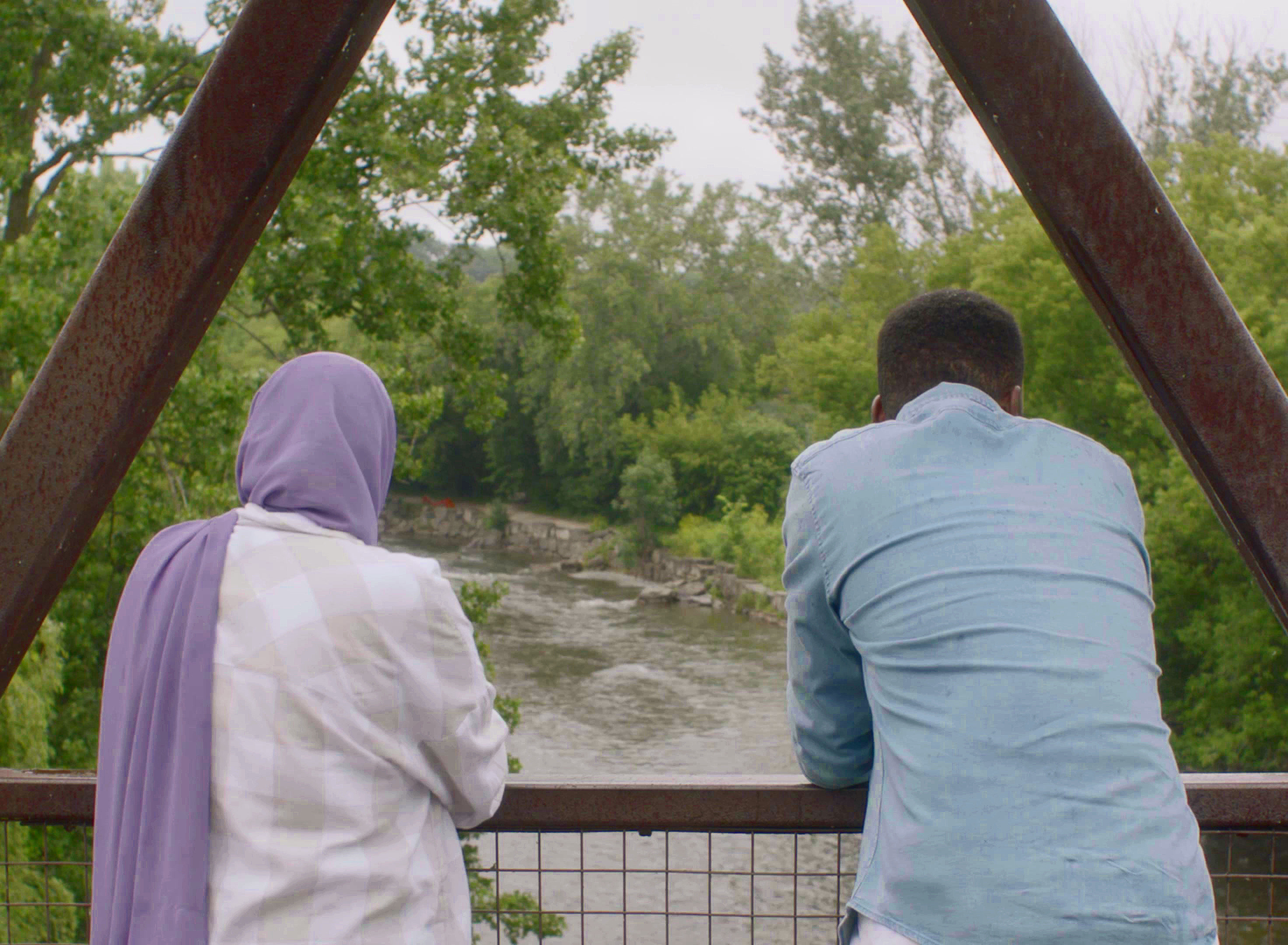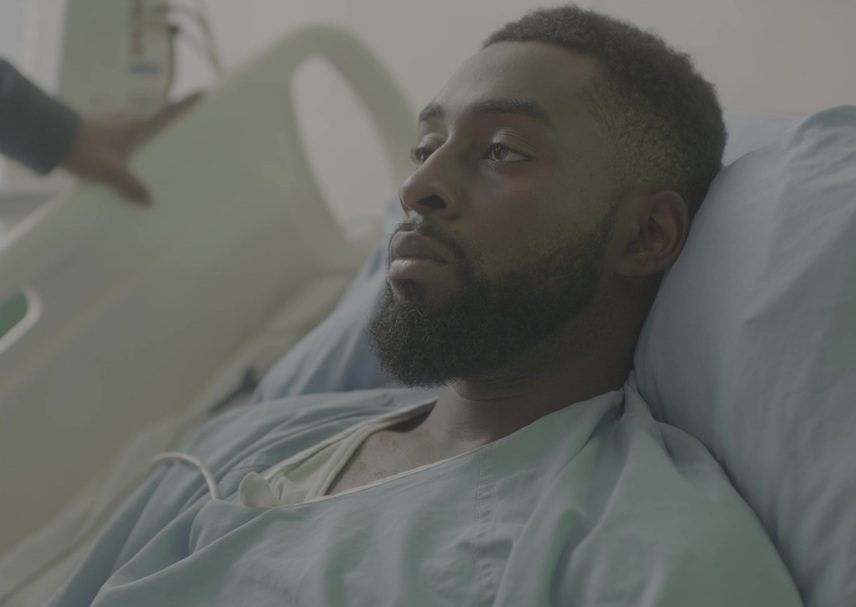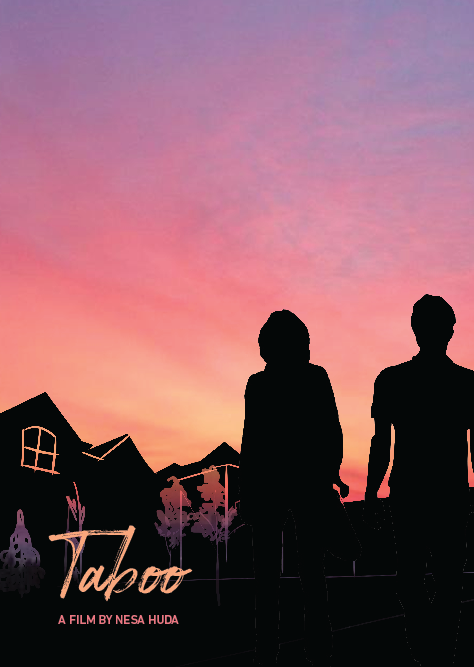Nesa Huda is a screenwriter, director, and the Canadian daughter of South Asian immigrants. A graduate of Boston University’s Screenwriting MFA, Nesa is mostly drawn to stories about being Muslim in North America. She writes about characters that are unapologetic for who they are. Characters that keep their hijabs on. Characters that aren’t tied to terrorism. Through this lens, she has written about childhood, love, mental health, and has even indulged in a mafia movie starring a Muslim character. As well, she has written a comedy pilot based on her childhood about an Islamic School titled The Madresa – think Abbott Elementary meets Never Have I Ever. Nesa has also written, directed, and produced a short film called Taboo. The film is about Naureen, a Muslim girl whose best friend Yousef tries to die by suicide, a Cardinal sin in Islam, and the fallout that ensues with the community and with their own friendship. The film was backed by the Ontario Arts Council and by community crowdfunding. The film was also unique in that 90% of our crew and actors were BIPOC – it was very important for her to keep a safe space for everyone working on the project, especially since she’s previously felt unsafe on sets as the only visibly Muslim hijabi, and usually the only person of color.
The film, Taboo will be going on the festival circuit over the course of 2023.
Nesa just finished her first job as a Script Coordinator on the ABC show starring Milo Ventimiglia, called The Company You Keep. She’s currently working on the upcoming Hulu series Deli Boys, a comedy about two Pakistani brothers in Philadelphia that are tasked with taking over the family business when a sudden tragedy strikes. All in all, Nesa hopes that with comedy and compassion in her work, she can change some perspectives and make the world a little safer for herself and people that look like her.
FWM: Why is filmmaking so important to you?
Growing up in Canada as the South Asian daughter of immigrants, I watched a lot of films and tv, especially in the Bollywood realm. I’d go with my mom every week to a little Indian store called “Spiceland”, and we’d pick up new Bollywood VCR tapes and watch them as a family. Looking back, I realize that this was my mom’s way of connecting back to her homeland, a place that she had left behind when she got married. This is why Bollywood especially has such a special place in my heart, as it really brought my family together and has a lot of nostalgic value.
Fast forward to my early teens, where I really got into film. In the 8th grade, I had a list of over 200 films that I just had to see and would scour online lists for new releases so that the list was as current as possible. I loved mob films, The Departed is my favorite, for example, and was always watching something new and taking notes on what I liked and didn’t like. What I did note with all of these Hollywood films, like many BIPOC was that there weren’t people that related to my experience as a Muslim girl on screen. Even worse, the few that did make it on screen were villains in the form of terrorists. This vilification of my community made me very frustrated and made me realize that we just need more people working in film and tv to counter this narrative. It was something that I was so passionate about that I decided to pursue it myself, and here we are!
FWM: You had two life experiences that profoundly impacted you. Tell us about how these experiences set the stage for your new film, Taboo.
When I was a kid, a very close family member experienced what we now know was a debilitating anxiety attack. It was a scary experience– they couldn’t move or function, really, they were just frozen in place for what seemed like days, crying. This made me realize that there was just so much I didn’t know about how the mind worked, and I felt frustrated, even as a kid, that I couldn’t help.
Similarly, in my early 20’s, a best friend of mine suffered from depression and suicidal ideation. In the same way as before, I felt ill-equipped to truly help them and meet them where they were. This got my gears turning, and this is where the characters of Naureen.

FWM: What is it like to be a Muslim in North America?
This is a great question, I’ve honestly never been asked it before, so thank you! It’s very difficult. I find myself always having to navigate spaces almost in defensive mode, wanting to smile big and being extra courteous to show people around me that I’m not a threat, because of the way that people look at me every day. On most days I don’t even notice when people stare at me and my hijab, but on others, it makes me uncomfortable. I’m not able to perceive myself all the time so I just assume and feel like I look like everyone else, but just one stare while just walking outside for example can remind me that I’m not in fact the same as everyone around me. Early last year, I was shoved in a Trader Joe’s by someone who was Islamophobic, and this generally made me feel like I stood out too much, and that I was unsafe. I always have to take extra precautions that people may not even realize when I step out of my house, which has now just become second nature to me. Before I speak to people, I see the look of judgment before they hear I don’t have an accent. Then the look changes. It’s subtle things like this that I’m going through all of the time – the question really is, what would the difference be if I did have an accent?
It’s this feeling of discomfort and the lack of safety that I really don’t want other Muslims to feel. Islamophobic attacks have skyrocketed in recent years which is really scary, and I hope with my work I can hopefully enact some change.
And that’s all!!
FWM: Tell us about the main character, Naureen.
Naureen really embodies the mistrust and misunderstanding that some folks may have towards mental health issues. She has quite the arc throughout the film, where she goes from a place of fear to a place of acceptance with her best friend. Through her journey, I really hoped to show how other people may feel in similar situations and maybe even show a positive way of dealing with all of the emotions that an event like this can cause. Throughout pre-production of this project as well, I spoke with some mental health professionals, one of which brought up the concept of survivors’ guilt. When someone finds a loved one attempting self-harm like Naureen does in this film, they oftentimes feel guilty for not saving their friend, and this can lead to suicidal ideation with the survivor themselves. On the other spectrum, the survivor can feel anger for being put in this position. There are just so many levels of grief that I feel haven’t been explored in situations like this, and I tried my best for Naureen to feel conflicted in the way a person in this situation would.

FWM: Share your vision in bringing mental health in immigrant communities to the forefront of discussion.
The reality is that while conversations about mental health are slowly destigmatized, marginalized communities are still left in the dark. They still have to navigate their religious, traditional, and Canadian identities before they can even begin to talk about the issues of the mind. My parents’ generation, the ones that moved to North America, had one focus, which was survival and making a living and putting down roots here. Mental health just wasn’t brought up in these spaces because survival was the main focus. But now that we’ve gotten to a point where our families are settled and we have space to think more critically about the things we’re doing through, I think it’s easy for our communities to shrug things off, because these issues weren’t issues before. But the thing is, mental health issues have always been around, they just have never been adequately addressed. Personally, I had such a lightbulb moment when I learned something as simple as what an anxiety attack was or looked like, and I was able to pinpoint certain points while growing up where I had those moments, just no words to describe them. So, this is all just a very long-winded way of saying that with Taboo, I’m hoping to really give people the words and images to just begin to communicate about mental health in ways that are useful for our communities.

FWM: Your film has been backed by the Ontario Arts Council and by community crowdfunding. What did this mean to you?
Before I got the grant from the Ontario Arts Council, I really wasn’t sure if I was good enough at writing to be able to pursue it. So when I received the notification, I really felt validated, that I was exactly where I was meant to be and that I have to just keep going. That was a very big milestone for me in both my personal and professional life in that way, and I don’t think I would have gotten this far without the help of the OAC.
In the spirit of pushing the project forward, we knew that we had to raise more money for the film, because it was very important for me to ensure that everyone working on Taboo was paid, even if it was an honorarium. I had already been through a bunch of project where I’d spend 14-15 hours a day on set and not be paid at all, and I didn’t want the experience to be the same for the people that were working for me. We set goalposts for the crowdfunding campaign, thinking of who we’ve reach out to over the course of a month, but the most extraordinary thing happened – we raised all of our money (10,000) in four days. This prompted us to raise our goal to 15,000. As a team that had budgeted a whole month for this fundraising effort, we were very shocked, in the best way – it was so heartwarming to know that so many people in the community believed in our project and wanted to support us.
Both of these instances were so important to the overall vision of the film because it meant we were able to hire talented people to be on our crew, from the actors to the cinematographer to the extras.

FWM: What is unique about your film?
When I started working on sets in Toronto, I was oftentimes the only person of color, and definitely the only visibly Muslim. This always made me feel othered, as if I didn’t belong in these spaces, which interestingly mirrored a lot of the internalized feelings I had already grown up with. This is why it was extremely important to me to have majority BIPOC cast and crew, to have the feeling of safety and family in ways I had never experienced on a set before. As well, I wanted to give opportunities to folks that have been traditionally shut away from these spaces and give them opportunities to learn and grow. I’m proud to say we succeeded, it was a quick, two-and-a-half-day shoot, but it was amazing.
Instagram@nesahuda, @taboothefilm. https://www.imdb.com/name/nm8526816/


